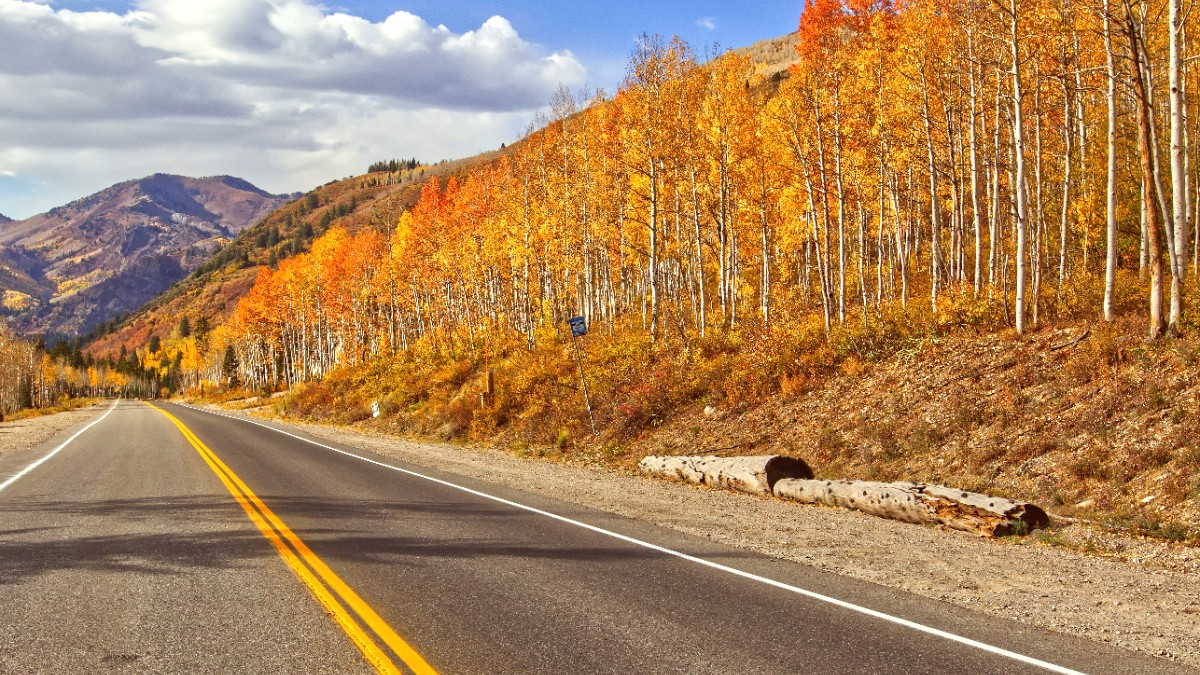
Rocky Mountains, USA
Aspen’s climate shifts dramatically throughout the year, bringing distinct experiences in each season. Your chosen activities inform the ideal time for your visit.
Altitude Brings an increased risk of altitude sickness. Symptoms include headache, nausea, dizziness, and fatigue. Sun intensity is higher due to thinner atmosphere. Dehydration is common in the dry air. In winter, sudden blizzards can lead to road closures. Avalanche danger exists in backcountry areas. In summer, afternoon thunderstorms with lightning are frequent. Wildfire risk exists during dry periods.
Aspen’s elevation brings an increased risk of altitude sickness. Symptoms include headache, nausea, dizziness, and fatigue.
Sun intensity is higher due to thinner atmosphere. Dehydration common in dry air. In winter, sudden blizzards can lead to road closures. Avalanche danger exists in backcountry areas. In summer, afternoon thunderstorms with lightning are frequent. Wildfire risk exists during dry periods.
Winter (Mid-Dec to Early April) & Summer (Late June to Early Sept)
Best skiing/snowboarding conditions. Lively après-ski. Major events (X Games). Ideal weather for hiking/biking/rafting. Cultural festivals (Aspen Music Festival).
Highest prices for accommodation, flights, lift tickets. Most crowded. Early booking advised. Afternoon thunderstorms in summer.
Spring (April - Mid-June) & Fall (Mid-Sept - Mid-Oct)
Lower prices, fewer crowds. Spring skiing possible. Early hiking/biking. Beautiful fall foliage. Ideal for hiking.
Variable weather. Some businesses close. Trails muddy/snowy. Limited ski operations in early winter.
Late April - Mid-June & Late Oct - Mid-Dec
Best deals on accommodation. Very few crowds, authentic local feel.
Many restaurants/shops close. Limited activities. Unpredictable weather. Often called "mud season" or "off-season".
Aspen’s elevation brings an increased risk of altitude sickness. Symptoms include headache, nausea, dizziness, and fatigue. To mitigate, hydrate well before and during your trip. Aim for 3-4 liters of water daily. Avoid alcohol and strenuous activity on your first day. Consider a gradual ascent; for example, stay a night in Denver before traveling to Aspen.
Sun intensity is higher due to thinner atmosphere. Wear sunscreen (SPF 50+ is recommended) and use Lip balm with SPF. Dehydration is common in the dry air. LifeStraw products also good for hiking water needs.
January to March optimal for snow conditions.
Late June to early October for pleasant weather and open trails.
Late September to early October for golden aspens.
Spring through fall for good conditions.
July and August host major festivals.
Travelers visiting Aspen must meet United States federal entry requirements. These rules rely on your nationality and the purpose of your trip.
No visa or special entry requirements apply for U.S. Citizens traveling to Aspen. A valid government-issued ID, like a driver's license or state ID, Works for domestic air travel. Starting May 7, 2025, a REAL ID compliant driver's license or another acceptable form of identification, like a passport, will be needed for domestic flights. Always carry a valid ID for identification.
Aspen is in the United States. Your entry requirements follow your country of citizenship. No general entry fees apply for the U.S. Beyond visa application or ESTA fees. Upon arrival, expect standard immigration inspection.
Aspen ranks as one of the most expensive destinations in the United States. Costs vary greatly between peak and off-peak seasons.
$150 - $300 USD daily. This budget is challenging to maintain in Aspen. It often includes staying outside of Aspen itself and using free transportation and self-catering.
Focus on free activities like hiking and visiting the Aspen Art Museum.
Expect grocery store meals and casual dining to manage costs.
$400 - $800 USD daily. This budget covers a mid-range hotel room or a standard condo rental. It allows for a mix of casual dining and some meals at nicer restaurants.
Mainly use RFTA, with occasional taxi or rideshare for convenience.
A single-day ski pass or a guided hike may fit the budget.
$1,000+ USD daily (easily $2,000-$5,000+ during peak season). This includes luxury hotels, high-end private home rentals, or ski-in/ski-out properties.
Expect fine dining experiences, private chefs, and extensive wine lists.
Multi-day ski passes, private ski lessons, guided backcountry tours, and spa treatments are common.
| Category | Item | Price Range (USD) |
|---|---|---|
| Accommodation | Hotel/Condo (Per Night) | $200 (off-peak budget) to $5,000+ (peak luxury) |
| Meals | Casual Lunch / Fine Dining | $15-$35 / $40-$100+ |
| Transport | Day Ski Pass / Gondola Ride | $200-$250+ / $35-$50 |